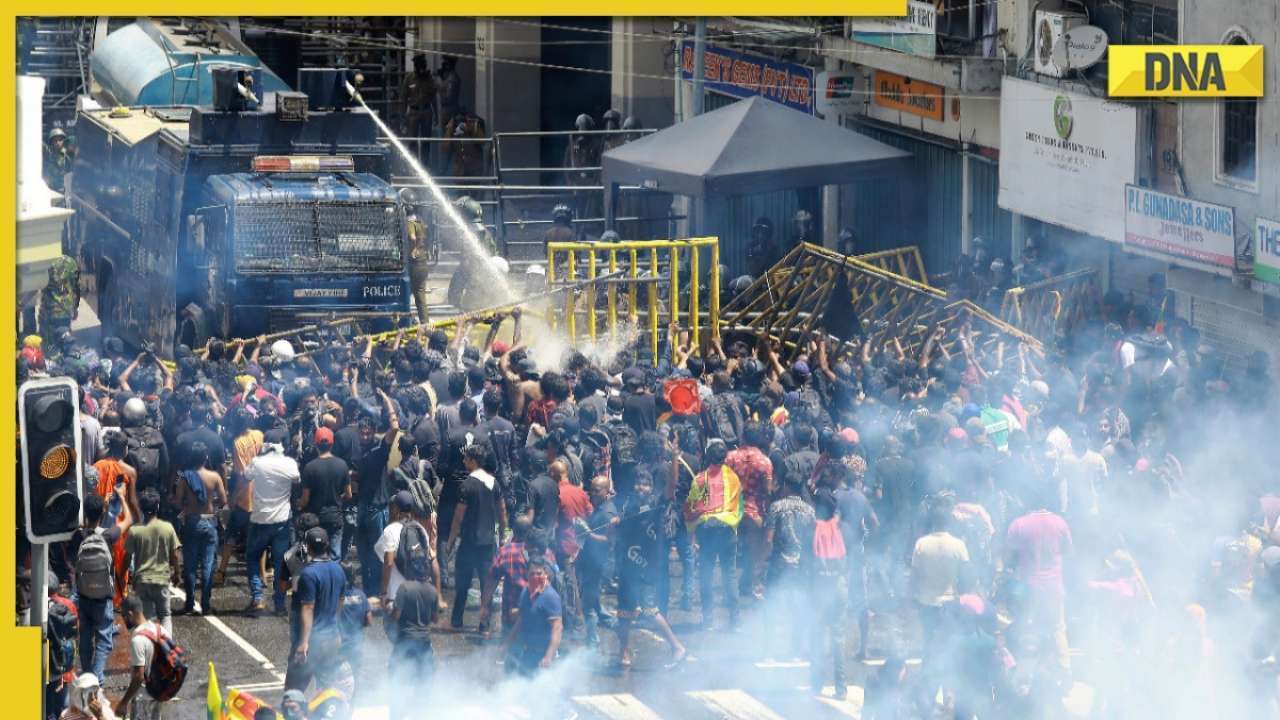
The Sri Lankan economic and political crisis has deepened with President Gotabaya Rajapaksa fleeing to the Maldives on a military jet in the face of an enormous nation-wide protest against his government's manhandling of the economy. The Prime Minister's office has imposed a state of emergency. Prime Minister Ranil Wickremesinghe has now become the acting President of Sri Lanka. Under the island nation's constitution, the Speaker of Parliament serves as acting president for a maximum of 30 days. However, given the circumstances, Wickremesinghe, who had announced his resignation as the prime minister, has been entrusted with the job.
The people of the country -- who have been facing crippling shortages of essentials, including diesel and petrol -- had been demanding Rajapaksa's resignation for over three months. Amid negotiations for a rescue fund with the International Monetary Fund, the country has been gripped by violence. What went wrong in Sri Lanka?
What is the Sri Lanka economic crisis? Why are Sri Lankans protesting?
According to experts, successive Sri Lankan governments' financial mismanagement should be blamed for the crises. Due to their populist policies, their national expenditure exceeded their income. They did precious little to produce goods and services that could be traded in, in order keep the essential foreign at optimum levels. The Rajapaksa government's populist tax cuts soon after it assumed office, didn't help the situation. The coronavirus pandemic also hit the country's tourism industry. Due to the pandemic, the remittances sent by non-resident Sri Lankans dwindled. This completely wiped out Sri Lanka's tax base and income. They were apparently worried about the country's financial mismanagement and its ability to repay loans.
With no credit and no tax revenue, the government had to turn to its already low foreign exchange reserves. The Sri Lankan government burned down nearly 70 percent of its foreign exchange reserves in just two years.
In March this year, they had no money to even make fuel payments. This has resulted in massive petrol, diesel and energy crises. How grim the situation is can be gauged from the fact that Lanka's inflation was touching 54.6 per cent last month.
Another big mistake the Rajapaksa government committed was delaying talks with the IMF despite the flagging economy. They banked on hopes that tourism would revive and remittances would start pouring in as the coronavirus pandemic subsided. However, that was not to be.
Later, they sought help from their neighbours India and China. Both helped financially but that wasn't enough to steer Sri Lanka out of the crisis.
What happens next?
With the president gone, the Sri Lankan politicians need to form a stable government whose primary goal is to secure IMF's help. Then they must make sweeping changes in the country's economy and polity. They would have to devise avenues to narrow the company's massive current account deficit. They would also have to find ways to replenish Sri Lanka's foreign exchange reserves.